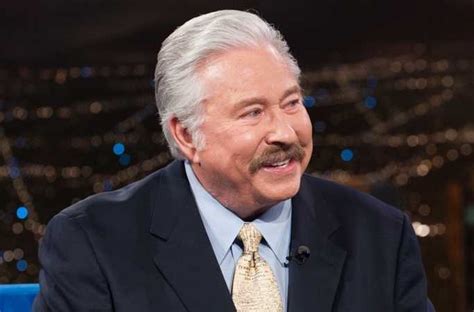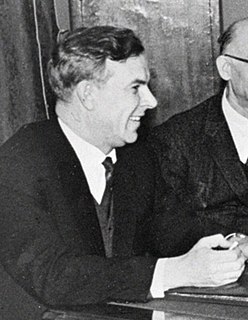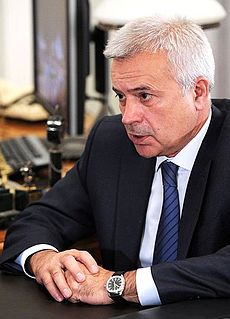A Quote by Marine Le Pen
Was the Soviet Union reformable? I would say no. They said, 'Okay, the Soviet Union isn't working.' They would say, 'No, it's great. We just need democracy, political pluralism, private property.' And then there was no Soviet Union. The European Union is the same.
Related Quotes
This much I would say: Socialism has failed all over the world. In the eighties, I would hear every day that there is no inflation in the Soviet Union, there is no poverty in the Soviet Union, there is no unemployment in the Soviet Union. And now we find that, due to Socialism, there is no Soviet Union!
Back in 1956, we signed a treaty and surprisingly it was ratified both by the Supreme Soviet of the Soviet Union and the Japanese Parliament. But then Japan refused to implement it and after that the Soviet Union also, so to say, nullified all the agreements reached within the framework of the treaty.
The first year I was in office, only about 800 people came out of the Soviet Union, Jews. By the third year I was in office... second year, 1979, 51,000 came out of the Soviet Union. And every one of the human rights heroes - I'll use the word - who have come out of the Soviet Union, have said it was a turning point in their lives, and not only in the Soviet Union but also in places like Czechoslovakia and Hungary and Poland [they] saw this human rights policy of mine as being a great boost to the present democracy and freedom that they enjoy.
KGB was inseparable part of the Soviet Union and the whole structure of the Soviet society. We believe that the achievements of the Soviet Union and of the Soviet society, it's main achievements until the split in 1991, it was at the same time the main achievements of the KGB, because it was working for the same cause.
Women are the most denigrated social group in the Soviet Union. The idea of women's emancipation is only a slogan in - but also, I should say, in many places outside - the Soviet Union. But especially in the militaristic Soviet society, people only thought of life in terms of struggle and the workers' toil.
European peace movement felt that the deployment of these missiles on European soil, on German soil would be a very great danger towards the Soviet Union in that those missiles could reach the Soviet Union, make it vulnerable within five to six minutes, that it could surgical strikes, strikes into the military infrastructure and that a strike into the military infrastructure could cause in fact World War III, an atomic world war and that this could also be used for first strike, for surgical search, first strike into the Soviet Union.
I don't think we replaced the Soviet Union with Al Qaida. I think we replaced, we should have, Soviet Union with the merger of globalization and the IT revolution. I think it's that. That is the real challenge that we face today. Unlike the Soviet Union, it has no face, it has no missiles, but it is something that challenges every job, every city and every community.

































